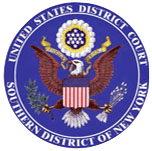 W
WAssociated Press v. Meltwater U.S. Holdings, Inc. was a district court case in which the Associated Press (AP) brought suit against Meltwater Group in U.S. (Meltwater) for clipping and sharing news items under copyright infringement and "hot news" misappropriation under New York common law. In a cross-motion for summary judgement, Meltwater argued they were not infringing under the requirements of fair use. Meltwater claimed that their service was transformative and therefore non-infringing on copyright. The court held that Meltwater's copying was not protected under the fair use doctrine and it was infringing on AP's copyright.
 W
WAuthors Guild v. Google was a copyright case heard in the United States District Court for the Southern District of New York, and on appeal to the United States Court of Appeals for the Second Circuit between 2005 and 2015. The case concerned fair use in copyright law and the transformation of printed copyrighted books into an online searchable database through scanning and digitization. The case centered on the legality of the Google Book Search Library Partner project that had been launched in 2003.
 W
WAuthors Guild v. HathiTrust, 755 F.3d 87, is a United States copyright decision finding search and accessibility uses of digitized books to be fair use.
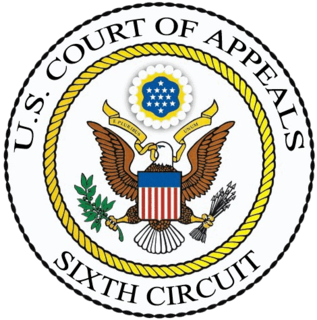 W
WBridgeport Music, Inc. v. Dimension Films, 410 F.3d 792, is a court case that has proved important in defining American copyright law for recorded music. The case centered on N.W.A.’s song "100 Miles and Runnin'" and Funkadelic's "Get Off Your Ass and Jam". Essentially, N.W.A. sampled a two-second guitar chord from Funkadelic's tune, lowered the pitch and looped it five times in their song. This was all done without Funkadelic's permission and with no compensation paid to Bridgeport Music, which claims to own the rights to Funkadelic's music.
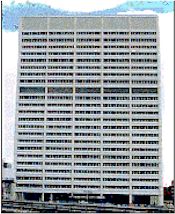 W
WCambridge University Press et al. v. Patton et al., 1:2008cv01425, was a case in the United States District Court for the Northern District of Georgia in which three publishers, Cambridge University Press, SAGE Publications, and Oxford University Press, initially filed suit in 2008 against Georgia State University for copyright infringement.
 W
WCastle Rock Entertainment Inc. v. Carol Publishing Group, 150 F.3d 132, was a U.S. copyright infringement case involving the popular American sitcom Seinfeld. Some U.S. copyright law courses use the case to illustrate modern application of the fair use doctrine. The United States Court of Appeals for the Second Circuit upheld a lower court's summary judgment that the defendant had committed copyright infringement. The decision is noteworthy for classifying Seinfeld trivia not as unprotected facts, but as protectable expression. The court also rejected the defendant's fair use defense finding that any transformative purpose possessed in the derivative work was "slight to non-existent" under the Supreme Court ruling in Campbell v. Acuff-Rose Music, Inc., 510 U.S. 569 (1994).
 W
WFisher v. Dees was a 1986 case of the United States Court of Appeals for the Ninth Circuit whose judgement refined the doctrine of fair use in American copyright law.
 W
WGyles v Wilcox (1740) 26 ER 489 was a decision of the Court of Chancery of England that established the doctrine of fair abridgement, which would later evolve into the concept of fair use. The case was heard and the opinion written by Philip Yorke, 1st Earl of Hardwicke, and concerned Fletcher Gyles, a bookseller who had published a copy of Matthew Hale's Pleas of the Crown. Soon after the initial publication, the publishers Wilcox and Nutt hired a writer named Barrow to abridge the book, and repackaged it as Modern Crown Law. Gyles sued for a stay on the book's publishing, claiming his rights under the Statute of Anne had been infringed.
 W
WLenz v. Universal Music Corp., 801 F.3d 1126, is a decision by the United States Court of Appeals for the Ninth Circuit, affirming the ruling in 2008 of the US District Court for the Northern District of California, holding that copyright holders must consider fair use in good faith before issuing a takedown notice for content posted on the Internet.
 W
WLewis Galoob Toys, Inc. v. Nintendo of America, Inc. was a court case which established the rights of users to modify copyrighted works for their own use. The case revolved around whether or not the Game Genie device which could modify video games in real time constituted creating a derivative work.
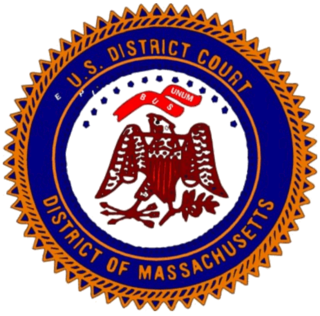 W
WMacmillan Co. v. King, 223 F. 862 was a copyright infringement case brought by a publisher of a two-volume economics textbook written by a Harvard University professor in the United States District Court for the District of Massachusetts. Note that this case was decided under previous statutory law and the law of fair use has evolved considerably since this case was decided.
 W
WPerfect 10, Inc. v. Amazon.com, Inc., 508 F.3d 1146 was a case in the United States Court of Appeals for the Ninth Circuit involving Perfect 10, Inc., Amazon.com, Inc. and Google, Inc. The court held that Google's framing and hyperlinking as part of an image search engine constituted a fair use of Perfect 10's images because the use was highly transformative, overturning most of the district court's decision.
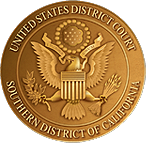 W
WPlayboy Enterprises, Inc. v. Welles was a United States district court case between former 1981 Playboy Playmate of the Year ("PMOY") Terri Welles and Playboy Enterprises, Inc. in which Welles was accused of trademark infringement and trademark dilution in her use of Playboy's trademarked terms in the metatags of her website.
 W
WReligious Technology Center v. Netcom On-Line Communication Services, Inc., 907 F. Supp. 1361, is a U.S. district court case about whether the operator of a computer bulletin board service ("BBS") and Internet access provider that allows that BBS to reach the Internet should be liable for copyright infringement committed by a subscriber of the BBS. The plaintiff Religious Technology Center ("RTC") argued that defendant Netcom was directly, contributorily, and vicariously liable for copyright infringement. Netcom moved for summary judgment, disputing RTC's claims and raising a First Amendment argument and a fair use defense. The district court of the Northern District of California concluded that RTC's claims of direct and vicarious infringement failed, but genuine issues of fact precluded summary judgment on contributory liability and fair use.
 W
WUMG Recordings, Inc. v. MP3.com, Inc., 92 F. Supp. 2d 349 was a landmark case before Judge Jed S. Rakoff of the U.S. District Court for the Southern District of New York concerning the Internet. The case concerned MP3.com's unauthorized duplication of essentially every music CD ever made for the purposes of launching a service entitled My.MP3.com or "Beam-it", which allowed users to access their private music collections online from anywhere in the world.
 W
WThe Chancellor, Masters and Scholars of the University of Oxford and Others v. Rameshwari Photocopy Services and Others, colloquially known as the DU Photocopy Case, was an Indian copyright law court case in the Delhi High Court filed by academic publishers Oxford University Press, Cambridge University Press and Taylor & Francis, against Rameshwari Photocopy Services and the University of Delhi, the former being a shop licensed to operate within the precincts of the Delhi School of Economics, University of Delhi. The plaintiffs alleged copyright infringement and sought a permanent injunction, and the defendants successfully argued that their actions fell within the bounds of fair dealing.